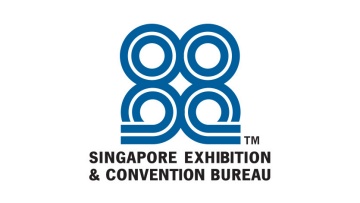
The meetings, incentives, conferences and exhibitions (MICE) sector is slowly beginning to chart a course back to business. This year, we are witnessing the gradual resumption of in-person events, albeit often in a hybrid format that provides the option for digital attendance. There is growing enthusiasm about the potential of large-scale global events in the new normal, but unlocking it will require high levels of collaboration between various stakeholders and the forging of new skill sets and educational pathways. –
Pre-Covid, Singapore’s MICE sector supported more than 34,000 jobs and generated S$3.8bn (0.8% of Singapore’s GDP) in added value. Long viewed as a global leader in business events, the city-state is consistently ranked as Asia’s top convention city. As the host city for many events that serve as test cases for these new operational requirements – not least Geo Connect Asia 2021 in March, and the upcoming World Economic Forum Special Annual Meeting in August – Singapore is blazing a trail for Covid-safe conferences.
“We are committed to working with our industry partners to reinforce the resilience of the MICE sector and revive our tourism industry in a safe manner,” says the Singapore Tourism Board’s (STB) executive director of conventions, meetings and incentive travel Dr Edward Koh. “We will support the industry in reimagining the visitor experience and solidify our position as a global and regional business hub.”
Ensuring safe events
However, after many months of restrictions, event organisers will be approaching the planning process with understandable caution. Delegates, too, are likely to be apprehensive about in-person gatherings after a year spent convening behind screens.
Health and safety is an absolute priority – and the responsibility lies with everyone involved. The host city will need to lay out what is expected, while event organisers must design their events around these frameworks and delegates must comply with all the rules.
As early as July 2020, STB developed a risk management framework for business events of up to 50 people. Created in consultation with the industry, this framework asks event organisers to limit crowd density and impose infection control measures at every stage of an attendee’s journey. They must also limit close contact between individuals, ensure a clean and safe environment, and prepare for Covid-related emergencies.
Under this framework, foreign participants are asked to undergo regular Covid-19 tests – before departure, upon arrival, and at intervals during their stay in Singapore. They will follow a strict itinerary, curbing interactions with the wider community outside the event and reducing opportunities for possible transmission.
Test-driving new protocols
In October 2020, STB started accepting applications from organisers to host events of up to 250 people. The idea was to ‘test drive’ different measures to see what works – balancing the desire to network against the safety of everyone in attendance. From 24 April, capacity for in-person attendance will rise to 750, with pre-event testing (PET) required for all attendees. For events of 250 and under, PET will not be required for local residents.

“It is heartening to see the MICE industry’s enthusiasm in embracing our Safe Business Events framework and organising safe physical events again in Singapore,” says Koh.
Since the launch of STB’s Safe Business Events framework in July 2020, close to 60 events hosting over 7,000 attendees have been held in Singapore, with no reported cases of Covid-19 infection.
Early indications suggest these events have been successful. One notable example was the Professional Convention Management Association (PCMA) Convening Leaders Event held in Marina Bay Sands in January. A total of 300 participants attended in person, joined by 3,000 online. The meeting has been described as a “benchmark” for how the MICE industry can move forward during these difficult times.
Through hosting events of this nature, STB can generate a large amount of data, which in turn can be used to refine best practices for future meetings. It is an experimental, inventive and above all collaborative endeavour, with the industry and government working together to create new protocols.
Training, development and business improvement
STB has also come together with industry partners to develop an Event Industry Resilience Roadmap (IRR). Among other aims, the idea is to forge new professional development pathways as the industry reinvents itself.
Much as we may want to talk about going back to normal, in reality the post-Covid normal might not have much in common with the before-times. This doesn’t have to be a bad thing – and in fact, the pandemic may have provided the perfect opportunity for the MICE industry to reimagine what is possible.
Hybrid events, for instance, will likely persist long after social distancing rules are lifted. The same applies to technology-enabled features like digital guides and contactless registration.
The industry, then, will require a different skill base, oriented more towards digital know-how and less towards project management. The IRR is working with several higher learning institutions to develop new training and certification for the MICE industry. It is collecting data to ensure that future grants and training programmes are as inclusive as possible.

Meanwhile, STB’s Tech College allows companies to learn how others have undergone technology transformation, what the pitfalls are, and what actions are critical for success.
“MICE event organisers can also tap on STB’s Business Improvement Fund,” adds STB executive director for Europe Carrie Kwik. “This supports event organisers to acquire new systems and pivot their business models to take advantage of the opportunities that hybrid events bring. The Business Improvement Fund will help reshape the local MICE landscape.”
In short, STB and the IRR are thinking beyond Covid. Rather than merely withstanding the pandemic, the emphasis is on future-proofing the entire MICE ecosystem so that businesses are fully equipped for whatever changes are to come. They believe transforming meetings will require the power of community – and a united industry voice.



